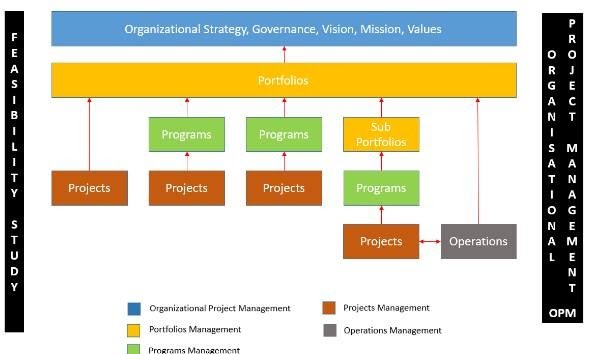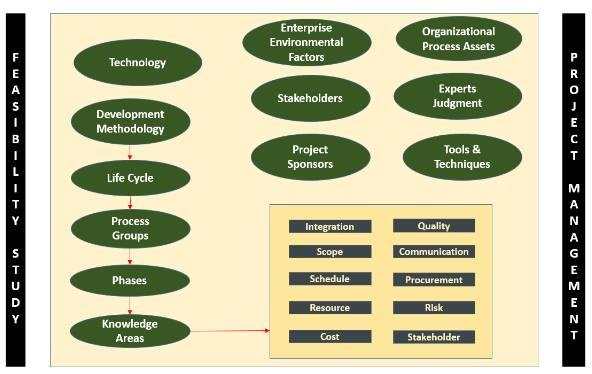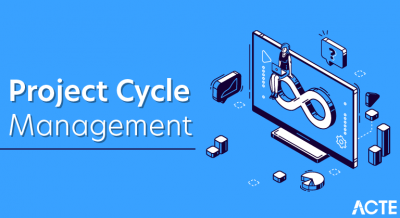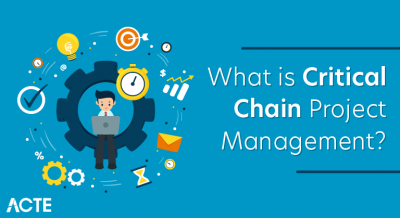
Introduction
We must always consider certain important factors before selecting or initiating a project in any industry. We call this a Feasibility Study for a project. It helps the organization to decide whether to start or reject the project. A feasibility study occupies a place of importance in contemporary project management. Decisions on whether to go ahead with a project and whether the intended beneficiaries will benefit from a project are informed by findings that emanate from a feasibility study. A feasibility study also helps project managers to determine whether a project is viable and select the best alternative from an array of alternatives that can address the identified problem. The feasibility study is one of the critical activities that are done at the first stage, the conceptualization phase of the project cycle. Therefore the feasibility study must be done meticulously so it generates appropriate and relevant information that will help project managers and stakeholders to make informed decisions on a given project. It must also be borne in mind that failure by the feasibility study to generate appropriate and relevant information may result in project managers making costly decisions that may impair the original intention or purpose of a project. This paper thus examines the importance of a feasibility study in project management.
Definition of Key Terms
Feasibility study: In the context of project management a feasibility study is a study that is done to determine options and whether the preferred or optimum option for a particular project is can achieve the desired objectives and sustainable given the likely resources available. Feasibility study can also be defined as an analysis of the viability of an idea. The feasibility study focuses on helping answer the essential question of “should we proceed with the proposed project idea.
Project: A project is any planned, temporary endeavor undertaken to create a unique product, service or other complete and definite outcome (deliverable) within a limited resource time scale and budget and normally requires mobilization of resources from different disciplines.
Project Management: Project management is the planning, organizing, directing and controlling of resources for a relatively short-term objective that has been established to complete specific goals and objectives. Project management therefore can be described as the means, techniques and concepts used to run a project and achieve its objectives.
Feasibility Study
It analyses whether the project aligns with the following factors of the performing business:
- Goals and Objectives
- Governance
- Standards
- Vision and Mission
- Project
- Program
- Portfolio
- Operations Management
- Enterprise Environmental Factors
- Organisational Process Assets
It also analyses whether the project meets the goals and objectives of:
- Project Sponsors
- End Users
- Customers
- Expert Judgment
- Stakeholders
Before any executive gives the green light to a project that could cost thousands (or millions) of dollars, you can bet he or she will want to see a feasibility study. So what is a feasibility study in project management?A feasibility study determines whether the project is likely to succeed in the first place. It is typically conducted before any steps are taken to move forward with a project, including planning. It is one of the—if not the—most important factors in determining whether the project can move forward. The study identifies the market for the project (if applicable); highlights key goals for the project based on market research; maps out potential roadblocks and offers alternative solutions; and factors in time, budget, legal and manpower requirements to determine whether the project is not only possible but advantageous for the company to undertake.
Although project managers are not necessarily the ones conducting the feasibility study, it can serve as a critical guideline as the project gets underway. Project managers can use the feasibility study to understand the project parameters, business goals and risk factors at play.
Key points of a feasibility study
A feasibility study in project management usually assesses the following areas:
- Technical capability: Does the organization have the technical capabilities and resources to undertake the project?
- Budget: Does the organization have the financial resources to undertake the project, and is the cost/benefit analysis of the project sufficient to warrant moving forward with the project?
- Legality: What are the legal requirements of the project, and can the business meet them?
- Risk: What is the risk associated with undertaking this project? Is the risk worthwhile to the company based on perceived benefits?
- Operational feasibility: Does the project, in its proposed scope, meet the organization’s needs by solving problems and/or taking advantage of identified opportunities?
- Time: Can the project be completed in a reasonable timeline that is advantageous to the company?
- Technology Considerations:

The different areas around which we conduct the feasibility study in a project during Project Management include:
- Integration Management
- Scope Management
- Schedule or Time Management
- Resource Management
- Cost Management
- Quality Management
- Communication Management
- Risk Management
- Procurement Management
- Stakeholder Management
These areas of feasibility study also involve other various entities of the organization, namely:
- Stakeholders
- Experts
- End Users
- Customers
- Project Sponsors

Importance of feasibility study
Feasibility Studies Show the Viability of Your Proposal
Every groundbreaking proposal or development has started with an idea, and while some have defied the odds set against them, those ideas rarely went to work without first being evaluated. By looking at the landscape that surrounds your project, including where your potential customers would come from and who you are competing with to gain then, you’ll be able to gauge the likelihood of achieving your goals. It’s important to note that feasibility studies can also help you determine the costs required to successfully launch a project. So if a proposal is not realistic initially, adjustments can be made to increase its viability.
Feasibility Studies Help Define Your Goals
Ideas are great, but they are only as great as their execution. A feasibility study will help you see what goals you need to put in place to be successful by providing benchmarks for a project’s viability. For example, if your community would like to build an indoor/outdoor sports facility, you may not have a clear picture of the construction costs. A feasibility study helps you understand your facility’s costs as well as its revenue earning potential. With this information in hand you can either attain the resources needed to complete your project or “right-size” your project based on available resources.
Feasibility Studies Help You Develop A Plan
Like ideas, goals are only useful when they are put to work. As you define your goals, with the help of your feasibility study, they will give you a better understanding of what steps you need to take. You can then take those steps and create a plan for the development of your facility.
Feasibility Studies Help Execute That Plan
Arguably the greatest benefit of a feasibility study is that they give you specific information about what a project requires for it to be sustainable. By understanding development costs, the competitive landscape, where potential customers will come from, and revenue potential, you’ll have a feel for what resources must be procured and what actions your team must take to achieve success. The feasibility study will serve as a road map describing the most optimal path to creating a new complex.
Feasibility Studies Will Give You an Identity
When planning a new sports, recreation, or entertainment facility, you’ll have a general idea of who you are targeting. However, to attain this valued audience, you must understand their needs as well as the competitive landscape. How can you stand apart from competitors? A feasibility study will help you understand their offerings. This is an important component of building your identity.
Benefits of conducting a project feasibility study
Let us quickly have a look at the 5 benefits of conducting a project feasibility study. Conducting a project feasibility study is always beneficial to the project. It gives all stakeholders a clear picture of the business problem or improvement opportunity under consideration.
1. Give valid reasons for undertaking the project
It helps the project team to identify valid reasons to undertake the project. Please remember that not every reason is actually a valid reason. It is equally important that the project team should be able to measure the validity of the reason in terms of data, facts, figures, etc. The project feasibility study helps the project team to measure the validity of the reasons for doing a project in a quantified manner. Our gut feelings do not hold any value here!
2. Make key decisions prior to the project kick-off
It helps project team make critical decisions prior to the project kick off. The crucial decision can be in terms of whether or not the project is doable, whether or not the project is operationally and financially viable etc.
3. Prioritize business problems and improvement opportunities
The project feasibility study helps project teams prioritize the business problems or improvement opportunity. Of course, the prioritization is done in a quantified manner.
4. Narrow down the scope of the project
The project feasibility study helps narrow-down the scope of the business problem under consideration. The business problem can be complex and vast in nature. In such a case, in order to reduce the complexity, it is necessary to narrow down the scope of the problem or improvement opportunity. One or two improvement projects cannot solve all problem of the organization. You will have to look at each business problem separately as long as none are co-related.
5. Determine the success rate of the project
The study helps enhance the success rate of the project by evaluating multiple parameters. The rule is simple! The project feasibility study has to be 360-degree. For the given business problem or improvement opportunity, the study shall be done considering all relevant parameters. It ensures project success on 95%+ occasions.





